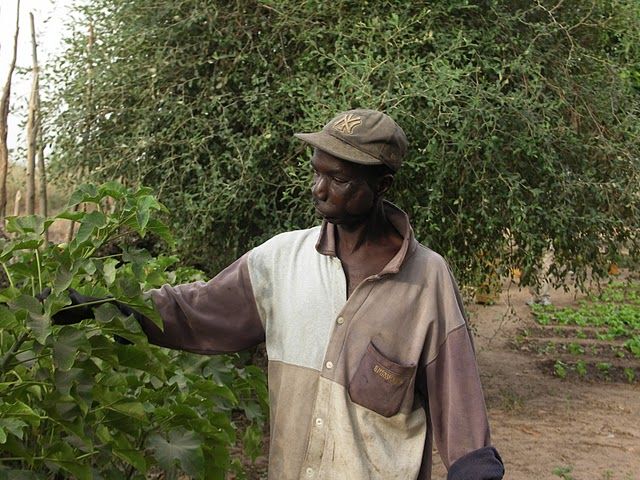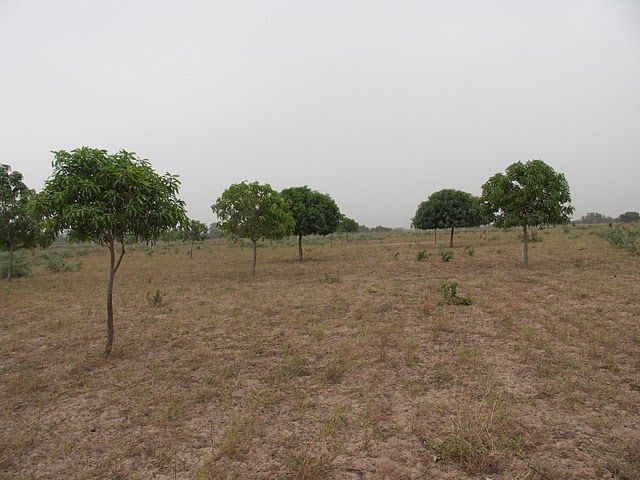
Mamadou is a farmer, but he is also a technical contact point for the EESF (Senegalese project managing energy and water for his region) and is the secretary of the group Return to Agriculture (REVA). He is passionately determined to improve his village and help it overcome poverty so that the younger generation will stay and prosper. This multipurpose objective also provides him with income all year long. « Agroforestry is like me. One single tree lot combines together all of our resources. Planting our crops with fruit bearing trees allows us to diversify our products and increase our income », said Mamadou very simply. He and other villagers have set up their crop fields using the system agroforestry, combining peanuts/mangos / jatrophas.

« The reforestation project allows us to test new ways to increase production and revenues ». The president of Felan's Federation states : « Agroforestry is our way to reforest the land. And furthermore, it will attract younger generations who see the benefits of fruit farming ». In the last few years, the farmers have realized that planting trees is a good thing. There are multiple reasons, but the most important is that fruit trees provide income during the dry season and during the lean season (very difficult period in the farmlands when food is scarce and work in the fields is in full swing). For example the Mango Trees planted in the middle of the peanut fields produce fruit from March until the end of the rainy season (October). So during the lean season, families can sell mangos and buy other food provisions such as rice. This alleviates much suffering for the farmers and their families. The farmers in the village of Diagle unanimously told us that « peanuts do not pay » The region is known for the specialized production of peanuts, which can no longer meet the financial needs of the farmers. At the last harvest, 2 million tons of peanuts were produced, but only 350,000 tons could be sold. The price dropped and the farmers could no longer make a living.